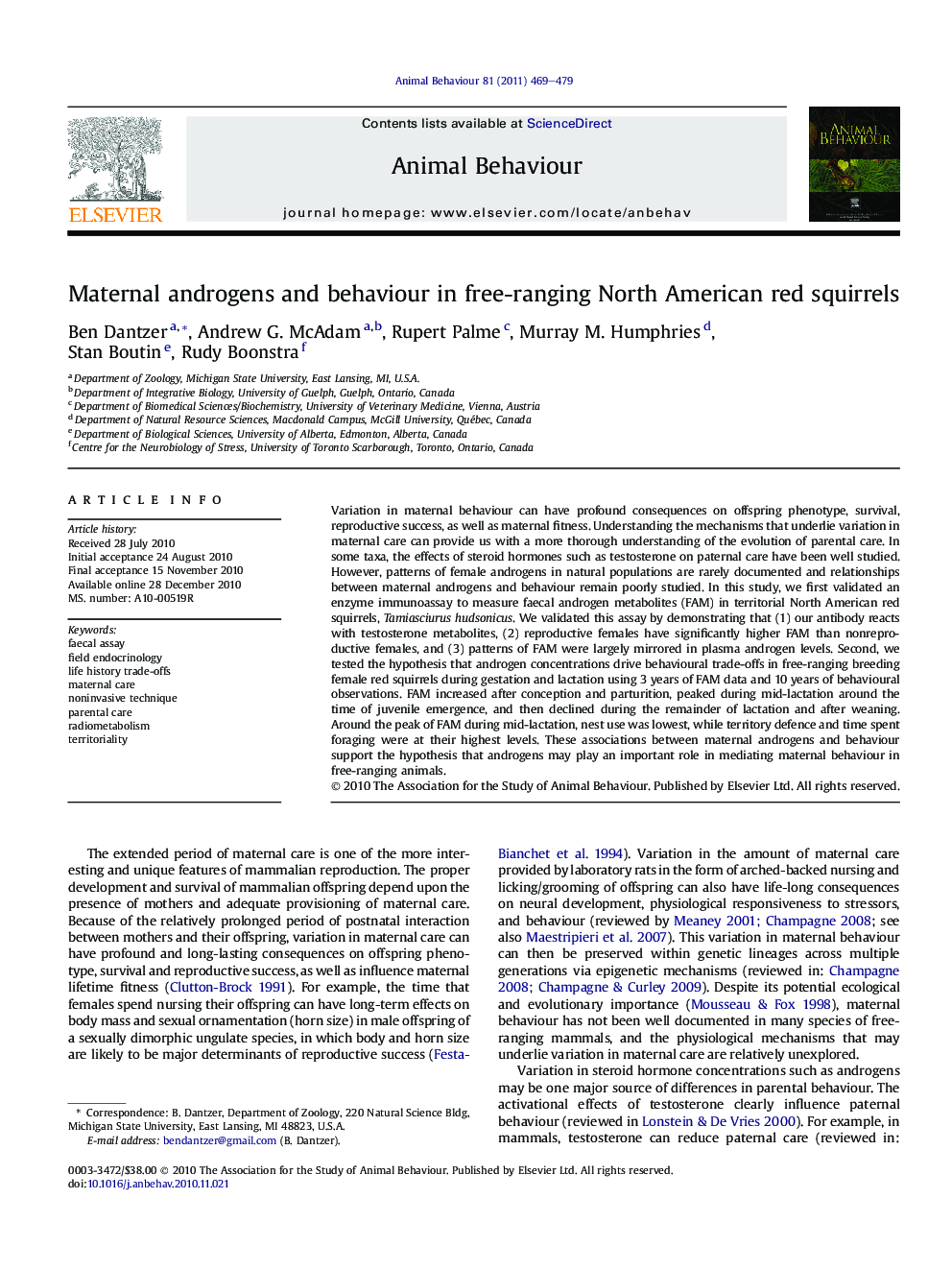| Article ID | Journal | Published Year | Pages | File Type |
|---|---|---|---|---|
| 10971189 | Animal Behaviour | 2011 | 11 Pages |
Abstract
Variation in maternal behaviour can have profound consequences on offspring phenotype, survival, reproductive success, as well as maternal fitness. Understanding the mechanisms that underlie variation in maternal care can provide us with a more thorough understanding of the evolution of parental care. In some taxa, the effects of steroid hormones such as testosterone on paternal care have been well studied. However, patterns of female androgens in natural populations are rarely documented and relationships between maternal androgens and behaviour remain poorly studied. In this study, we first validated an enzyme immunoassay to measure faecal androgen metabolites (FAM) in territorial North American red squirrels, Tamiasciurus hudsonicus. We validated this assay by demonstrating that (1) our antibody reacts with testosterone metabolites, (2) reproductive females have significantly higher FAM than nonreproductive females, and (3) patterns of FAM were largely mirrored in plasma androgen levels. Second, we tested the hypothesis that androgen concentrations drive behavioural trade-offs in free-ranging breeding female red squirrels during gestation and lactation using 3 years of FAM data and 10 years of behavioural observations. FAM increased after conception and parturition, peaked during mid-lactation around the time of juvenile emergence, and then declined during the remainder of lactation and after weaning. Around the peak of FAM during mid-lactation, nest use was lowest, while territory defence and time spent foraging were at their highest levels. These associations between maternal androgens and behaviour support the hypothesis that androgens may play an important role in mediating maternal behaviour in free-ranging animals.
Keywords
Related Topics
Life Sciences
Agricultural and Biological Sciences
Animal Science and Zoology
Authors
Ben Dantzer, Andrew G. McAdam, Rupert Palme, Murray M. Humphries, Stan Boutin, Rudy Boonstra,
